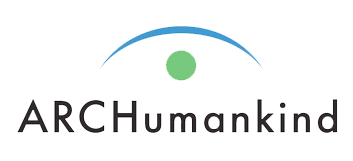Following the failure of the United Nations to confront major humanitarian crises such as the Syrian one, many of us have expressed frustration on its inaction and incapacity.
However, mostly unknown to the vast majority of us, a United Nation institution – International Telecommunications Union (ITU) which counts 193 countries as members – is about to show its existence and importance in an unsuspected domain: the internet, where an upcoming World Conference on International Telecommunications that will gather in Dubai in December might set the path to finish an open internet as we know it.
According to Mr Huang Huikang, legal adviser and director-general of the Department of Treaty and Law to China’s foreign ministry , “Although cyberspace is virtual, it needs rules and norms to follow. China holds that the United Nations, as the most universal and representative international organisation, is the best forum for elaboration of international norms and rules in cyberspace.”
In September 2011, China, Russia, Tajikistan and Uzbekistan submitted a proposal for an International Code of Conduct for Information Security to the UN General Assembly, with the goal of establishing government-led international norms and rules standardising the behaviour of countries concerning information and cyberspace.
As Mr Vinton Cerf in his op ed in The New York Times of 24 May 2012 rightly observes, “the number of countries censoring Internet has grown from four to forty between 2002 and 2012”. One can only guess how many from the 193 countries with voting power at the ITU would like to hide behind an international code set by China, Russia and others and in doing so follow their path without having to pay the political price of promoting internet censorship themselves.
Needless to say, all these governments’ stated concerns are to do with combatting all sorts of cybercrime, namely child pornography, and furthermore, they claim they ultimately want to allow everyone to share the same quality of service.
In parallel and apparent co-ordination to this initiative, ETNO, the European Telecommunications Network Operators Association – an association dominated by the old European telecommunications monopolies that are now the head of vast European oligopolies – is trying to use the aforementioned World Summit to pass a ‘sending party pays’ rule. At a technical level this means that the paying party in an exchange between two network service providers will be the sending network; in reality however, it will mean the network service providers will exert more control over the internet for commercial gain, and it is ultimately the end user i.e. you, I or someone in a developing country who bears the real cost.
As Rohan Samarajiva, founding chairman and chief executive of LIRNEasia (an ICT policy and regulation think tank in Africa) explains, this proposal of making people pay by the internet goes hand in hand with the intention of the above mentioned countries to control the internet and its users: “the dangers of ‘sending party pays’ is that it could result in the localisation of the internet.”
Furthermore, he says, “more pay walls could be setup as a result, and very few Africans could then access this content, as they lack the funds or even the means to pay for it….So even if they were willing to pay, which I doubt, most of our people are not able to pay significant amounts for the information that they currently use”.
So far, the European institutions have kept a firm standing opposing this move. Lady Catherine Ashton, in the Budapest Conferencestressed the need to maintain freedom in the internet as well as the enormous value of the internet as a tool to the development of less advanced countries:
“The internet accounted for more than 20% of GDP growth in the world’s major economies over the last five years…It is remarkable to think that the number of internet users in developing G-20 countries will be three times the number of users in developed G-20 countries in three years’ time. In 2005, that number was just one third!…We all have seen how the Internet has promoted social and democratic reform. It has put power in the hands of people. Less than two years ago, social media opened our eyes to what was happening and what we have come to call the Arab Spring. Young people could send us news from the ground through Twitter, Facebook or YouTube.”
Particularly, in the South Asian context, the internet has been a tremendously effective tool for freedom and development, but that could now unravel should proposals tabled for WCIT come to fruition.
The European Commission has also expressed the same opinion, and the European Commissioner for Digital Agenda, has argued that new international regulations should be unchanged. “The role of the ITU should thus be what it currently is.”
Knowing the immense power of the telecommunication industry in Europe, namely in the media, it is now essential that all of those who care for freedom and development will make its best effort to support the European institutions’ stand on the issue. It is essential that the European Parliament supports the European Commission’s point of view and that every citizen presses its respective Member State in the same direction.
The Internet is an amazing phenomenon. Never before have had we witnessed a tool that has brought so much innovation, growth and relative prosperity to the whole world, east and west, north and south. It is now time to act and not allow this patrimony to be attacked.
